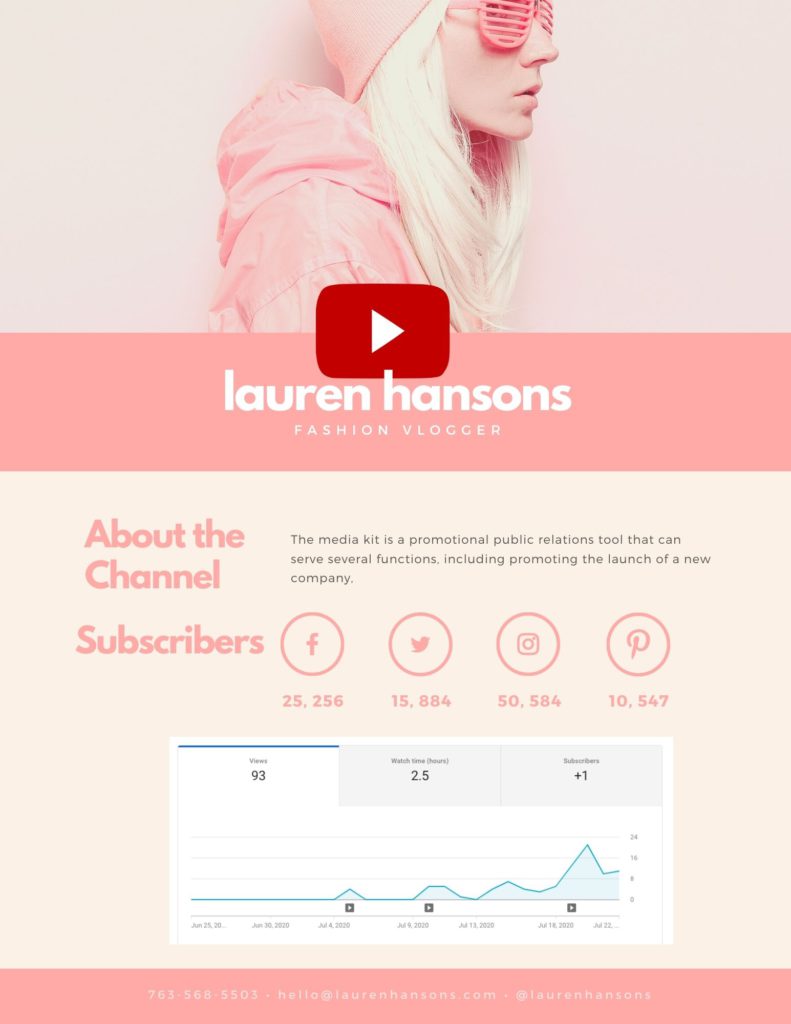Sponsored posts on your blog are very different than YouTube sponsorships. To understand why we first have to define what a sponsored blog post even is.
What is a Sponsored Blog Post Exactly?
Bloggers will sometimes refer to each of the following as “a sponsored blog post.”
- The company pays you to write an article about their product and post it to your website (and promote the content to your audience).
- The company has pre-written content that they’ll pay you to post to your website and promote the content to your audience.
- The company pays you to place a guest post on your website (essentially buying backlinks, which is against Google’s TOS).
In this post, I’m mostly going to be focused on situation 1. But, keep in mind that situations 1, 2, & 3 often all get referred to as sponsored blog posts.
Where To Find Sponsors For Your Blog
1) Search for Affiliate Programs Instead
An affiliate deal will almost always make more sense than a sponsored post for both bloggers and advertisers. Why?
For the advertiser: There’s no risk as they only pay the blogger when the blogger definitely generated a sale. Advertisers are guaranteed to make a healthy profit on the deal, and it’s easy to manage.
For the Blogger: Blogs are a much easier platform to get people to click links and buy a product when compared to Instagram, TikTok, etc. Meaning you really can cut out the song and dance where you try to convince a company just how many sales this will drive for them.
Plus, affiliate deals will make you more money.
Advertisers should be paying slightly more than typical ad rates with sponsored content—meaning more than $20 per 1,000 pageviews.
But, with a generous affiliate program, you could easily 10x those numbers. For example, my post on the best private video hosting services generates an RPM of nearly $600!!! And it will continue to generate income for years while not being entirely dependent on a single company.
2) Use a 3rd Party Service to Connect With Brands.
Using 3rd party services is your next best option for a couple of reasons.
- Traffic Validation: On YouTube, your video views are listed publicly. On blogs, brands worry that bloggers are faking their traffic numbers. It’s less work to let a 3rd party validate this for them.
- Finding Companies is hard: Affiliate deals are usually a better option for everybody, so it’s hard to find companies that do this sort of thing. These services do their best to match blogs with brands.
I haven’t personally used the following services. However, they exist and are worth looking into if you want to go the sponsorship route.
- Brybe – I like this one because it’s a marketplace where you can set prices openly.
- Activate
- Blog Meets Brand
- Clever
- Cooperatize
- GetReviewed
- Influence Central
- IZEA
- Kitchen Play
- Markerly
- PayPerPost
- SeedingUp
- Social Fabric
- Sway
- TapInfluence
3) Grow Your Blog’s Traffic and Wait…
You probably won’t like this because it isn’t very proactive. But, if you’re a large enough site, companies will start reaching out to you.
Companies know that large blogs in their niche are a great place to get the word out about their product,. They may reach out to you on their own if you become that large blog in the space. So make sure they can easily find your contact info from your website.
4) Outreach
On most other platforms, outreach is my number one way to find sponsors. With YouTube, all you have to do is Google “Company Name + YouTube partnership.” However, with blogs it’s not so simple. There simply aren’t as many companies paying for sponsored blog content out there.
This is because an affiliate program usually makes more sense (due to the lack of risk and reduced management costs vs. sponsored content). That said, sponsored content may offer some unique things to brands that affiliate programs do not. Such as.
- You might have a large audience that’s an excellent fit for their product (Including email lists, social media, etc.)
- You might have high domain authority, allowing you to rank in Google for things they cannot.
- They might not have a writing staff but want want to rank for various keywords (This assumes you’ll be writing the sponsored content).
- Many companies want to get favorable “reviews” of their products to show up on 3rd party websites.
- If you have high domain authority, backlinks from your website are incredibly valuable.
Be sure to highlight these things when you’re reaching out to brands about sponsorships.
5) Sponsored “Guest” Posts
I don’t accept guest posts for money (because it’s against Google’s Terms of Service). In the rare event you get caught, you’re upsetting your golden goose. Seems like a silly thing to risk for a few hundred dollars.
That said, if your site gets large enough, people will offer to pay hundreds of dollars or more to guest post on your site and obtain a backlink. If I were going to accept this, I’d want them to write high-quality unique content that isn’t syndicated all over the Internet.
Is Your Blog Big Enough for Sponsorships
Advertisers typically measure their ad spend as a cost per 1,000 impressions. With something like Facebook ads, that cost may be $20 per 1,000 impressions for cold traffic. If your blog audience matches their product you can likely charge slightly more, but they’ll still want to pay you by 1,000 impressions.
Meaning if your blog isn’t even getting that much traffic, you’re probably too small to seek out sponsorships (unless the brands goal is to get content written for them).
That said, remember to include every place you can sponsor the post when reaching out to brands. Things like social media followings, email lists, sidebar impressions, homepage impressions, etc. The more places you can promote the content, the better.
Also, remember that you can charge them for the time it’ll take you to write the article if you’re writing the content. This comes up when the value you’re providing the brand has more to do with a product review, ranking for a specific keyword, and a backlink vs. exposure.
How Much You Should Charge for Sponsored Posts
Unfortunately, there is no set price as far as how much a sponsored post should cost. And pricing can be complicated because it really depends on why the brand is paying you to begin with.
The Brand Wanted Access To Your Audience
If the company wants to sell something to your audience (and for some reason, you couldn’t work out an affiliate deal). You want to charge them a rate per 1,000 impressions.
Influencers convert at higher rates, so you’ll be able to charge more than it costs to advertise to cold traffic on Facebook (~$20 per 1,000 impressions). You should also add up how many places you can display this article (home page, socials, email lists, etc.). How prominently can you advertise this article, and how many people will see it.
I can’t tell you the exact amount to charge; it’s a negotiation after all. Just know that if you’re charging less than it costs to advertise to cold traffic via social media, then you’re not charging enough. This means you should be going north of a $20 RPM.
The Brand Wanted You To Write Content For Them
Maybe the brand doesn’t have a team of writers, and they wanted to try to rank for a keyword that’d be hard to get on their website. In which case, you’re largely going to be charging them for your time to write the post. This is more a factor of how much you value your time.
Maybe they wanted a product review on a 3rd party website. In which case, I’d try to get a free product to review. And I’d charge them for my time. And I’d probably try to charge them for access to my audience in all these scenarios as well.
Maybe the brand wanted a backlink. Selling backlinks is against Google’s TOS. But, keep in mind that this company may value this in negotiations (it’s a reason to raise rates for the other services you’re providing).
How To Pitch Your Blog to Brands
OK, you’ve found some companies that align perfectly with your blog’s content. What do you say to them to attempt to work out a deal?
First, keep in mind that an affiliate deal is likely a better option for both you and the brand, and go for that deal if they have it.
If not, keep in mind that people who work at companies are busy, and they don’t want to investigate anything. So you want to compose a short message that includes everything that they need to know. The following are items I’d expect you to have in your message.
- What your blog’s about, where to find it, why your audience is a good match for their product
- Domain authority if that’s a high number.
- Traffic your blog gets per month.
- Size of social media followings and email list that you’ll be promoting the content to.
- Terms of the deal (whether you plan to write content, where you plan to show the content, and for how long).
Consider creating an infographic with this information and sending that out alongside a short custom message. Here’s an example I created for sending to YouTube sponsors (you’ll want to adjust it to have blog stats but you get the point).

Thanks for reading! And if you’re interested, I also created guides on how to get TikTok Sponsors, YouTube Sponsors, Podcast Sponsors, Instagram Sponsors, and Twitch Sponsors. I recommend checking those out if you’re curious how the rates for those platforms compare with this one.


